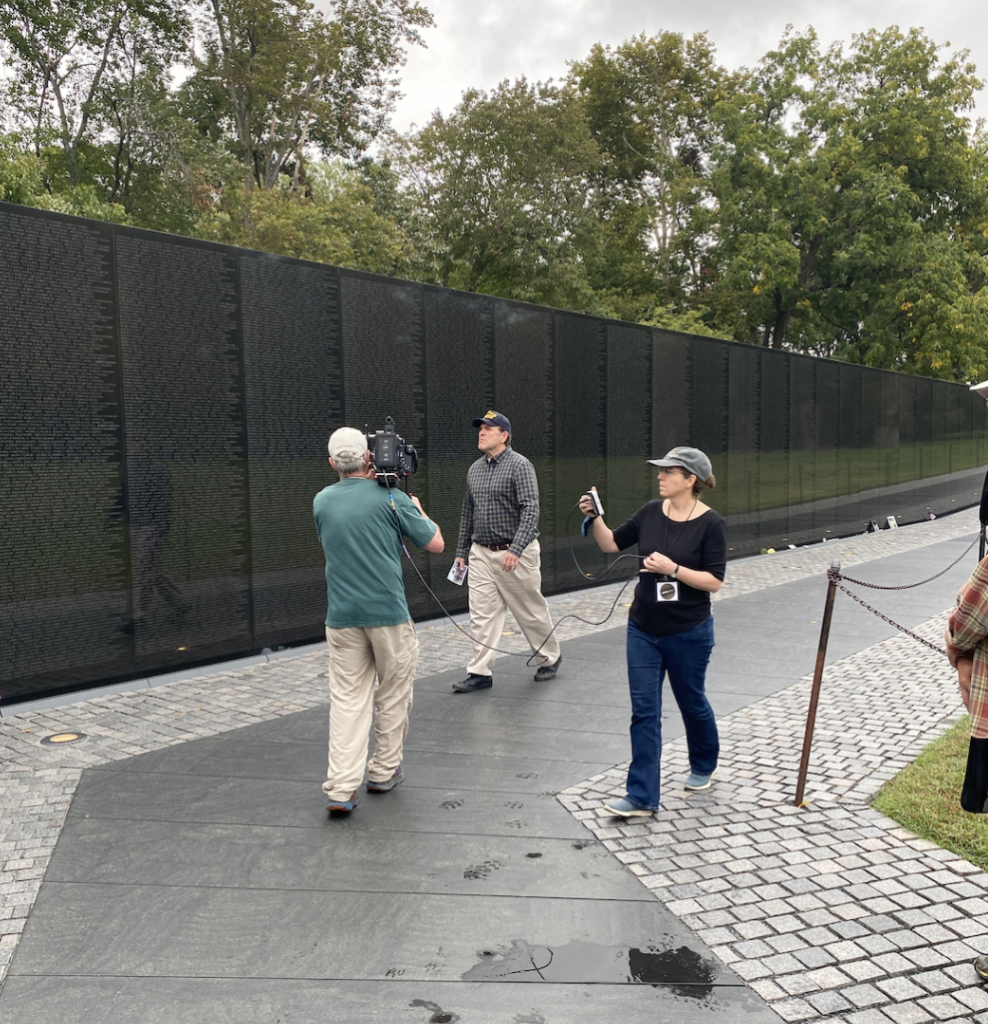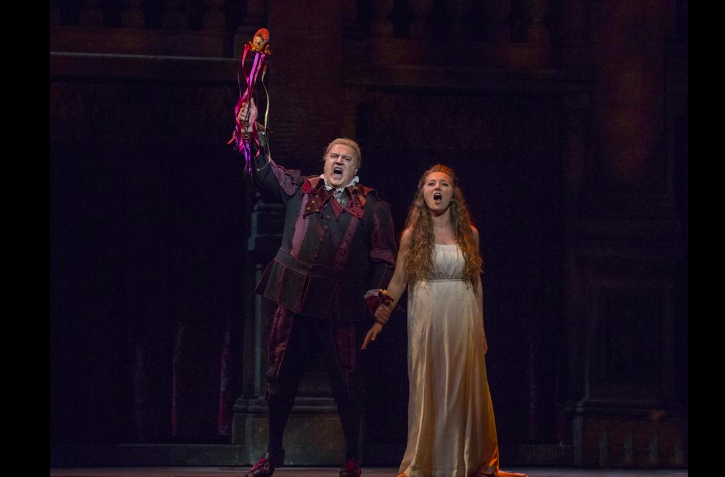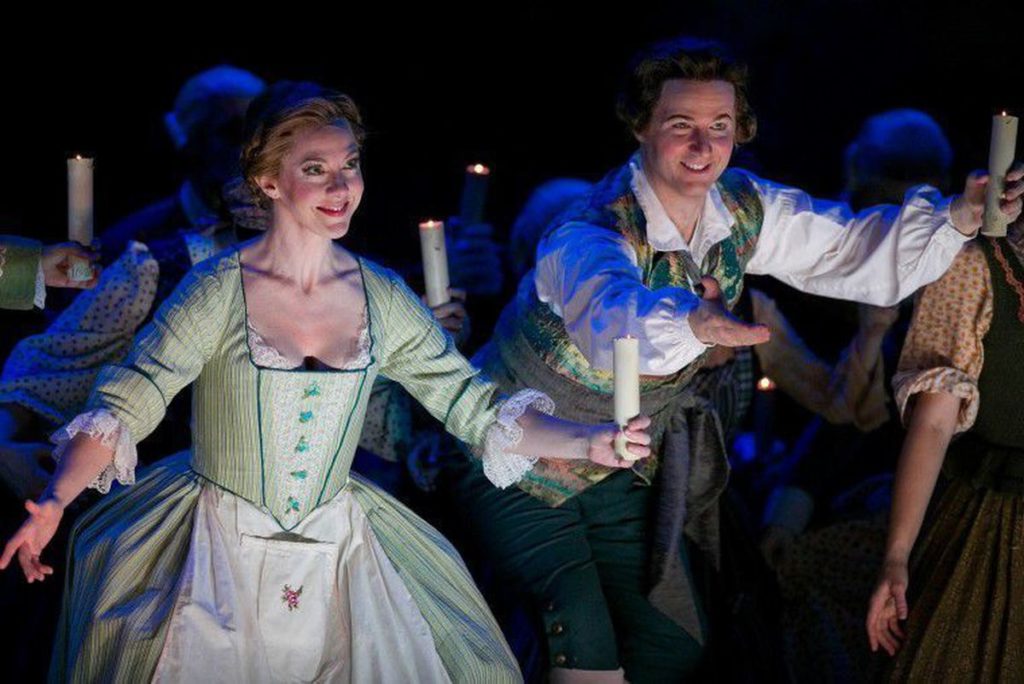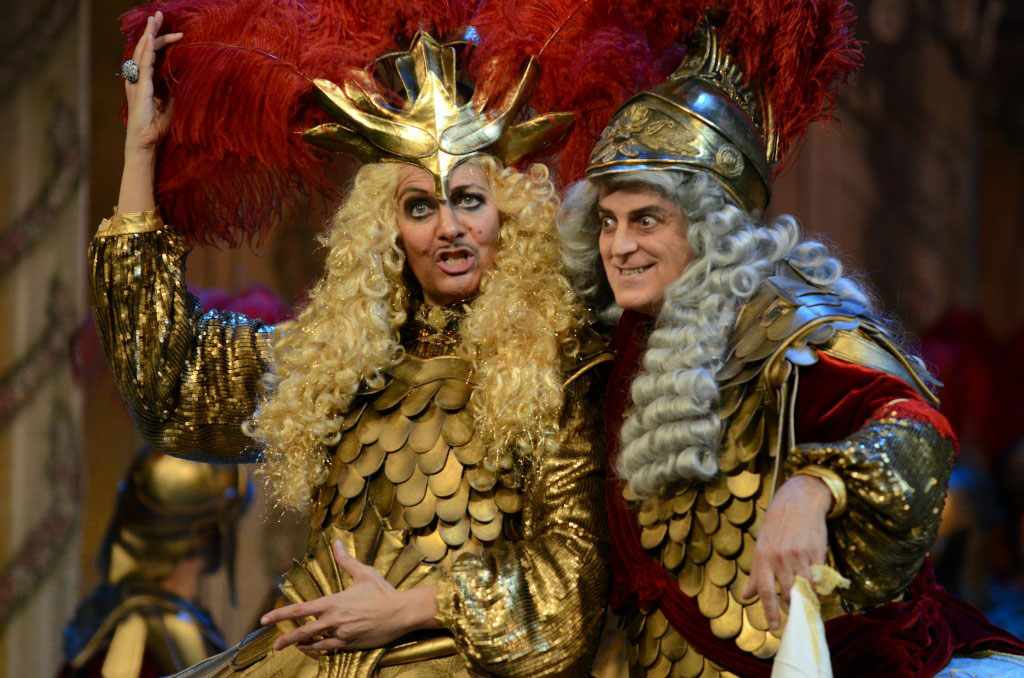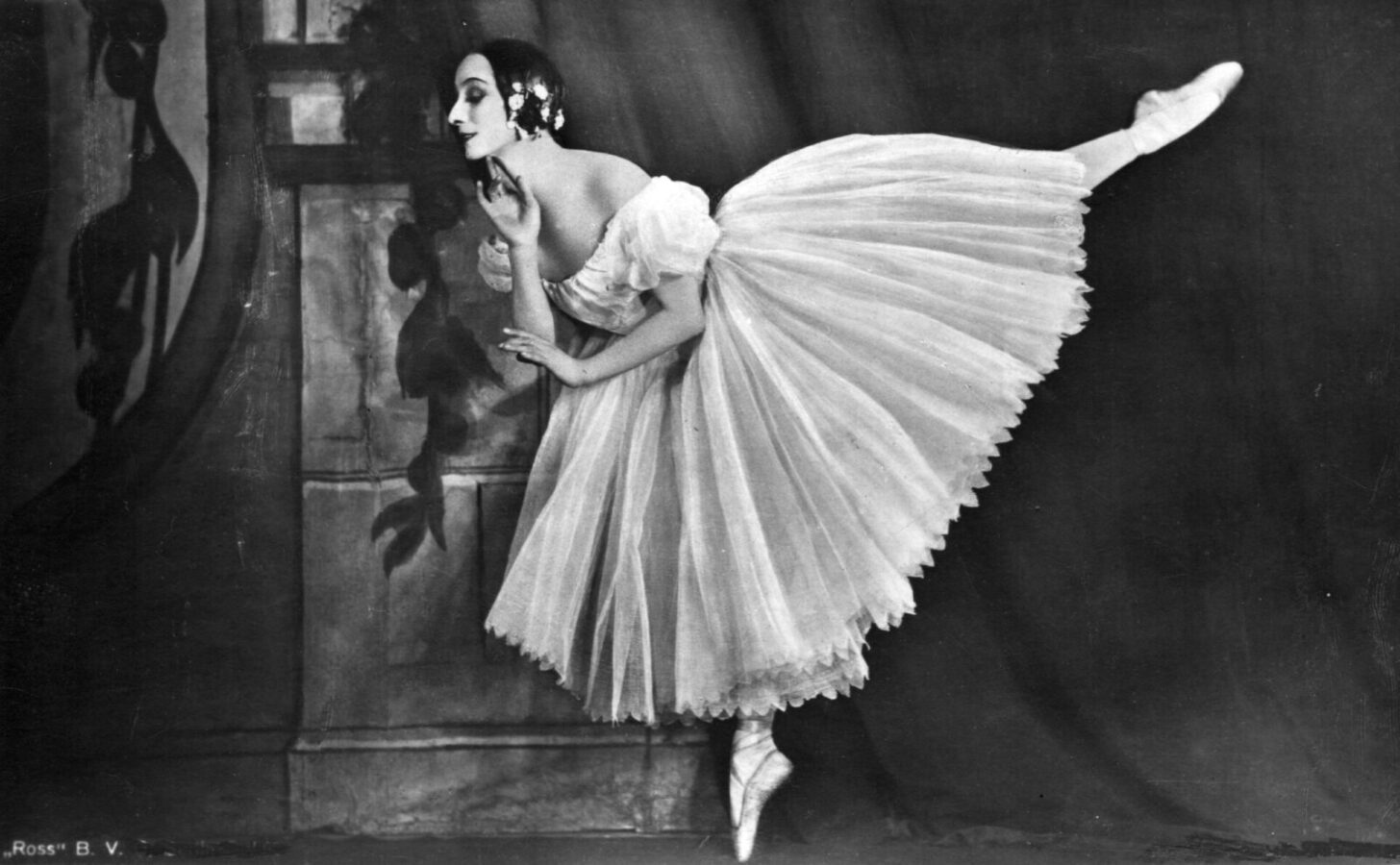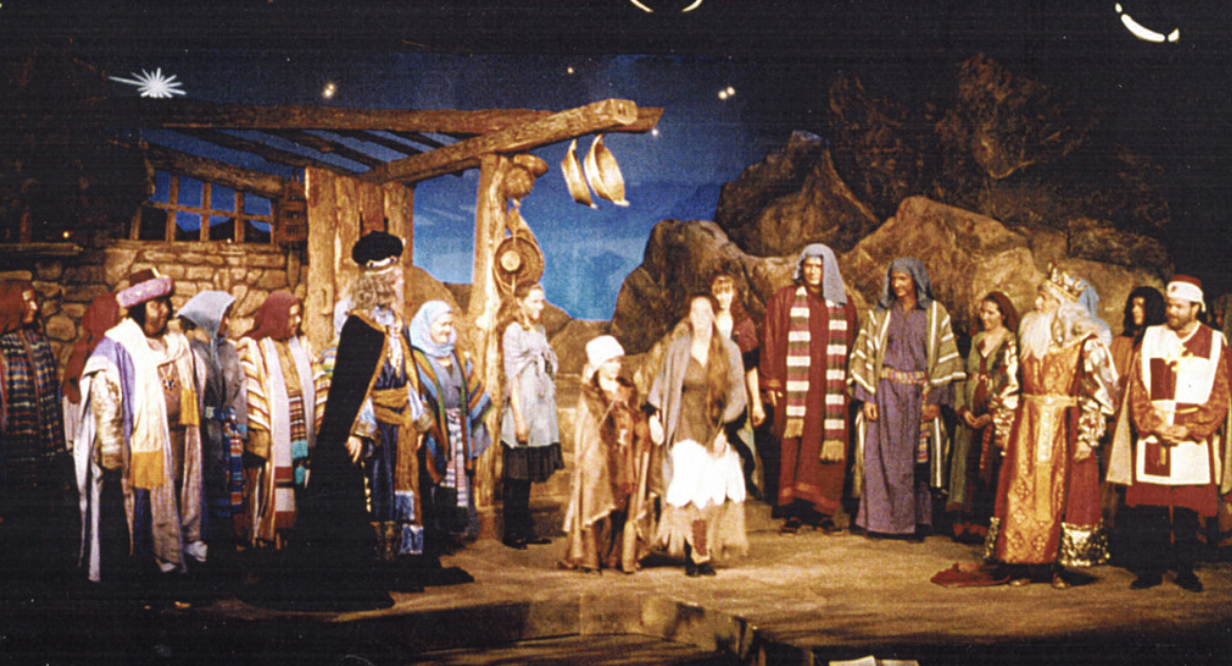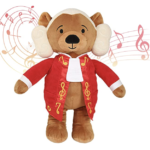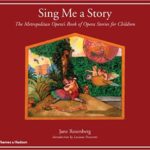We asked authors Peter Hilliard and Matt Boresi about their work, and specifically about their new piece INBOX ZERO, which we will present on May 4, 2023. Unsurprisingly, their answers are very thoughtful. Enjoy!
Inbox Zero is part of a multi-project exploration of the degrading effects of commerce and class upon survival and fulfillment. Can you talk more about that, and why you feel it’s important for the arts, and opera specifically, to tell these stories?
 PETER: Opera is a great place to work out big ideas and emotions, particularly if you can find a way to make the ideas central to an interesting story. Matt and I write about the things that concern us in our world, and just like everybody else, we find ourselves thinking a lot about how much things cost, why they cost so much, (and why so little!) how people get the money they need to get by, and what the pursuit of financial security and material goods does to us.
PETER: Opera is a great place to work out big ideas and emotions, particularly if you can find a way to make the ideas central to an interesting story. Matt and I write about the things that concern us in our world, and just like everybody else, we find ourselves thinking a lot about how much things cost, why they cost so much, (and why so little!) how people get the money they need to get by, and what the pursuit of financial security and material goods does to us.
The answers are complex, but it seems obvious to us that commerce isn’t leading us to fulfillment, but despair. Most of us find ourselves in some kind of hustle, which is somehow wrapped up in who we think we are as people. And since so much of the hustle is about the projection of an identity we each choose for ourselves, we can easily wind up fabricating versions of ourselves that aren’t grounded in reality. Maintaining these projected identities can cut us off from the actual people in our lives who might help us grow and tell us the truth, who might help us discover a more authentic self in community. The imperatives of buying more and more things and becoming who we wish we were leave us open to scams and frauds, which are themselves run by people hustling. And the cycle repeats itself.
I think it’s basically impossible to extricate yourself from these forces; they are the fabric of our world. But we can watch a character struggle through the consequences of self-delusion and see how we ourselves might be taken in. If we could be flattered enough, and if we thought what we were being asked to do helped us and the ones we love be happy, most of us would do very shameful things. If we can’t really face the truth about ourselves, we can at least see someone else do it in an opera.
In this piece, the most difficult thing is for the main character to admit that he made a mistake. If only we could all do that.
 MATT: We very much want to tell stories about the world we live in now – we want to prove that opera can do that. Opera has done that in the past, but contemporary settings and message are not the first thing anybody thinks of when they think of opera – they think of bullfighters and pharaohs and geishas. There are many ways to tell stories: stories about the past that echo in the present, stories about the future with warnings for the present… but that’s not our mission right now. It’s why we consider ourselves so fortunate to have worked with UrbanArias over a number of years – their mission, “Opera. Short. New.” – that intersects perfectly with what we want to do right now, and the audiences are open to seeing their own worlds on that stage.
MATT: We very much want to tell stories about the world we live in now – we want to prove that opera can do that. Opera has done that in the past, but contemporary settings and message are not the first thing anybody thinks of when they think of opera – they think of bullfighters and pharaohs and geishas. There are many ways to tell stories: stories about the past that echo in the present, stories about the future with warnings for the present… but that’s not our mission right now. It’s why we consider ourselves so fortunate to have worked with UrbanArias over a number of years – their mission, “Opera. Short. New.” – that intersects perfectly with what we want to do right now, and the audiences are open to seeing their own worlds on that stage.
Opera could really stand to pick up some new fans and show itself in new ways to its current audience. Contemporary audiences are always asking “how is this relevant?” We know that there are stories set in the present day driven by passions that justify singing in big voices, and we want to tell those stories. Our audiences have really responded to it, particularly at UrbanArias, and in cities where our UrbanArias commissions have been performed. People say to us “I know those characters – those people up there.” Or, “That’s me up there” – in a way that they don’t in historical pageants or avant-garde work, and we love hearing that.
“The Last American Hammer” is a great example – when it’s done at Universities, the students all say, “Milcom (the conspiracy theorist main character), that’s my uncle. And we don’t know what to do about Thanksgiving anymore.” We just got back from watching a production in Grand Rapids, MI, where the show was performed in a factory to punch up the message about the disappearance of American manufacturing, and so many audience members said, “This is the perfect Michigan show. This show is about us right here.” They don’t know that people say that in every town where the piece is performed. We love that so much. Opera cuts deeper than any other art form, and we want to cut deeply about the current moment.
We have things to say about the world – in particular how aggressive capitalism and the hustle culture of the US grinds us all down – makes us sick, makes us nuts. That idea of taking all you can take, of saying whatever you need to to get ahead, of looking at everything from the perspective of how monetizable it is – that’s always been a part of America – but in the internet era it feels really metastasized. It’s tragic and it’s comic and it lends itself to the stuff of opera.
What would you say are the biggest challenges to writing a one-person show? Is there anything that’s easier than writing for a larger cast?
MATT: Ha, well, mostly it’s difficult! I suppose you don’t have to track all the characters the way you do in a bigger show – there are fewer plates to keep spinning and arcs to land. But everything else is a challenge. The biggest hurdle is, frankly, how do we keep this exciting? When the audience comes in they see one set and one singer, and more or less, that’s probably all they’re going to get all night – so you have to keep changing the tone, and the ideas, and the music, so it doesn’t feel static.
In this particular piece we try to move the character to a few different locations, in his head anyway, to keep it moving and keep it fresh, but by and large it’s an intimate piece about a person alone with their thoughts and some very intrusive voices, and the main goal of the music and the words is to keep those thoughts interesting and songworthy.
One of the reasons we really want to do this particular show with this particular team – (conductor) Bob Wood, (director) Dennis Whitehead-Darling, and (baritone) Keith Phares – these are theatre people – they understand and care about how a show should work to be dramatically and comically effective. We saw a production of (UrbanArias commission) “Blue Viola” in Memphis directed by Dennis, and his work really elevated the piece. We’ve worked with real contemporary opera specialists at UrbanArias – Jennifer Aylmer immediately leaps to mind (who starred in “The Filthy Habit” at UA all the way back in 2011). There’s a difference when your piece is performed by people who have created new work before, sung in English a lot, and can really act. The show is clearer, it’s more effective, it leaps off the stage.
PETER: It’s definitely not easier to write for one person. You have to find ways to give the singer a break, to give the audience some tonal variety, and to keep the story moving. In our real lives, when we are alone at home, we do not normally talk to ourselves for an hour at a time. And yet that’s what a character in a monodrama must do.
When there are a several characters in the opera, I can try to capture several musical personalities, and then play those musical ideas against each other in interesting ways. In a monodrama, it’s not enough for the single singer to have just one musical personality. They must embody the whole world of expression themselves. Musically, I also love writing ensembles, so it’s sad for me not to be able to do that. But writing for a singer like Keith is really an extraordinary treat, and it’s fun to find ways to use what he does best.
We also found a way to introduce computer generated spoken text as a sound effect, and I think we discovered how to make it integral to the story. It’s striking how much of our communication is automated now, and the development of high-functioning AI will only increase that trend. We wanted to try and explore that feeling that you’re never actually talking to a real person; give Keith a break now and again, and contribute to the texture of the piece.
You occupy a fairly unique spot in the larger world of sung theater – how did you come to land in the musical theater/opera crossover space? You also write musicals – do they have an operatic flavor at all? What would you say are the principal differences between your operas and your musicals?
PETER: Matt and I started out writing musicals at NYU, but we were both much more interested in opera. Our musicals are influenced by our operatic work, and our operas often have the pacing and humor of musical theatre. For me the difference between the two forms lies in the weight of the storytelling accomplished by the music. In an opera, the music is doing a lot more of the storytelling, and the composer is able to take that music wherever the story wants to go, whether that be in simplicity or great complexity. I can be very formally free, and I can manage carefully the energy of a scene in and out of song form as the libretto dictates without worrying about whether each song is a discrete idea. In a musical, song form dominates, and the composer’s options of expression have to find their way into more discrete shapes, rising out of dialogue, expressing the idea boldly and then letting the talking do the lifting again.
But I also think critics don’t do either form any favors by policing the line between these two forms as belligerently as they do. When a musical does something musically ambitious that asks more of the audience than it normally expects, we shouldn’t reject it because it doesn’t sound like the musical theatre we recognize. And when we encounter a tune in an opera with a form we understand, it’s ludicrous to dismiss it as ‘too musical theatre’. Good music is good music.
Matt and I find audiences for new opera are almost always more adventurous than musical theatre audiences, which is what makes opera so fun to write. We can really stretch ourselves, and have confidence that the artists will match me and that the audience will come along for the ride.
MATT: Didn’t Shakespeare say, “Some are born to crossover work, some achieve crossover work, and others have crossover work thrust upon them”? We both grew up with musicals and opera in our lives and we love both forms – we trained in both, we each played Harold Hill in our youth! (Maybe that’s why we care so much about hustle culture!) We met in the Graduate Musical Theatre Writing Program at NYU, but we wanted to write operas – there’s a joke to be made about there about bringing a gun to a knife fight. But we loved it. And we wrote our Masters thesis show together – a modern opera buffa called “Don Imbroglio”. That piece appeared Off-Broadway, produced by Beth Morrison Projects, with a cast that had Broadway singers and Met singers. That’s the two worlds coming together as much as possible!
When Rossini was asked what the most important things were about opera he said, “Voce, voce, e voce.” (The voice, the voice, the voice.) And when George M. Cohan was asked what the three most important things were in American Musical Theatre he replied, “Speed, speed, and more speed!” When we write opera, we try to bring some of the infectious energy of musicals to the table, and when we write musicals, we want the music to have real heft. Mozart and Da Ponte got it – their operas are definitely opera, but some of them move at the pace and are as character driven and as wild a ride as a Broadway show. We want to bring that back – operas that aren’t swallowed up by the alienating effects of the music or the handling of the subjects. Opera that you can really enjoy like a musical, and musicals that are as smart and high quality as opera.
We’re writing a musical right now at the opera and musical theatre program at University of Illinois, the operatic baritone Nathan Gunn and his wife, the musician Julie Jordan-Gunn, commissioned the piece. It’s a backstage comedy set at an opera quite like the Met – so it’s a chance for us to poke fun at all the more absurd aspects of the opera industry we’ve been thinking about all our lives. There’s a lot of operatic singing, but there are big song and dance numbers, too. It’s a real privilege to be able to play in both formal sandboxes.
How do you think your current work differs from your earlier work? Have your styles evolved over time, and if so, in what ways?
MATT: A classmate of ours said the most cutting thing about us years ago, “You guys can really write – if you ever have something to say, you’ll be unstoppable.” Ouch! – but he was right. We’ve always been fascinated by playing with form – making sure our musical and dramatic form follows the function it must perform. And we’re history buffs, we love historical models of how songs and scenes work – and we don’t want the effective aspects of past operas to be lost to history. But now that we’re dads, and taxpayers, and life has kicked us around a little in the way life does – we really want to say things about life, love, society – things that audiences will hear and say, “Thank you for saying that. I’ve felt these same feelings and thought these same thoughts and I value having them reflected on stage.” It’s an overused term but we want our audiences to feel “seen” when they’re at our operas.
PETER: Our work is always changing. We are fortunate to be able to see a lot of our older work in brand new productions, and it’s fun to track our development over time. One of the most interesting things is to see ideas that are now central to our work in the periphery of our older pieces. For example, our work now centers around the dangers of paranoia and delusion, and the benefits of community and relationships. 10 years ago, we were writing more explicitly about the importance of the arts, and how different parts of society experience culture. But we can see our new themes percolating in the older work too. We write about what we love and what we know. Hopefully you’ll see what you know and love as well.
 Generally speaking, the standard repertoire is the most satisfying to sing; however, contemporary repertoire, not being bound by hundreds of years of tradition, allows me to put my own stamp on something. Furthermore, most of the contemporary works that I’ve performed have been in English. No matter how familiar I am with French, German or Italian, I’m never going to be able to bring the same level of authenticity to a character as I can when I’m singing in my native language, i.e., it will always feel like there’s a filter between me and the audience, and I’ll be more inclined to sing for outcome, instead of staying in the scene. In contemporary opera my line of communication with the audience is more direct. If there’s anything I dread about contemporary works, it’s the occasion when a vocal line isn’t intrinsically singable, but of course one can find plenty of examples of that in Mozart. In any case, I do enjoy a challenge and a great libretto makes it all the more worth it.
Generally speaking, the standard repertoire is the most satisfying to sing; however, contemporary repertoire, not being bound by hundreds of years of tradition, allows me to put my own stamp on something. Furthermore, most of the contemporary works that I’ve performed have been in English. No matter how familiar I am with French, German or Italian, I’m never going to be able to bring the same level of authenticity to a character as I can when I’m singing in my native language, i.e., it will always feel like there’s a filter between me and the audience, and I’ll be more inclined to sing for outcome, instead of staying in the scene. In contemporary opera my line of communication with the audience is more direct. If there’s anything I dread about contemporary works, it’s the occasion when a vocal line isn’t intrinsically singable, but of course one can find plenty of examples of that in Mozart. In any case, I do enjoy a challenge and a great libretto makes it all the more worth it.



